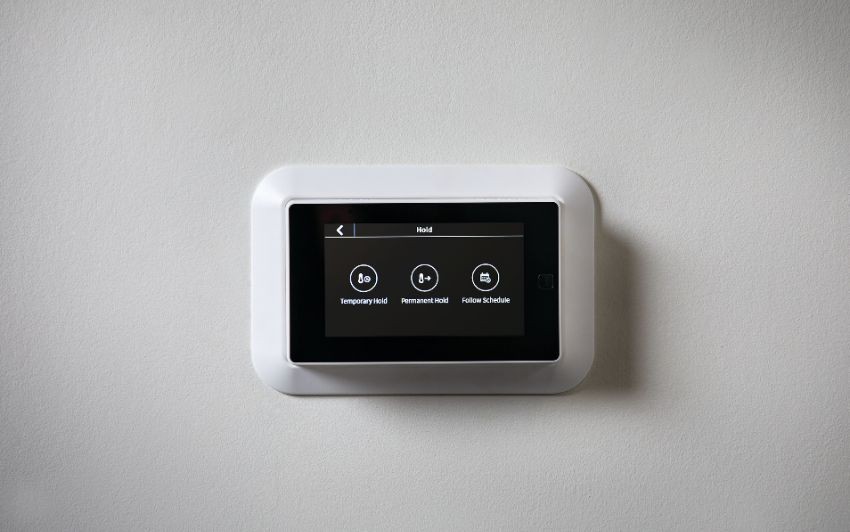
Ductless vs Central Air | Which is Better for Your Home?
Ductless and central air conditioning regulate your home’s temperature in different ways. The best and most straightforward way to decide which type you should get is by evaluating your home conditions. This article compares the two to give you a better understanding. We’ve outlined the benefits and potential shortcomings of each to help inform your decision.
How they Work
In terms of functionality, both types draw warm air from your home, absorb the heat and moisture, then release it outside.
Ductless air conditioners—or mini-split systems—don’t need ducts. Instead, they work in two components: an outdoor and an indoor system. The indoor units are attached to the walls in specific rooms, making them suitable for zone cooling. These units are connected to the outdoor components via a refrigerant line and electrical system.
Conversely, a central air conditioner uses ducts to distribute cool air throughout your home. The outdoor components use a compressor, condenser coil, and an indoor evaporator coil to remove heat and deliver cool air. They are best for cooling several spaces at once.
Evaluating the Pros and Cons
Pros of Ductless Air Conditioners
-
Easy Installation
Ductless air conditioners not needing ductwork means avoiding the costs of reworking your home to install new vents. Instead, all you need to do is pay for a professional to mount the indoor unit on your wall.The outdoor unit is usually placed near the location of the indoor component. A technician will drill a three-inch hole for the connective wire, but this is once again much less intrusive and more cost-effective than new ductwork.
-
Individual Room Control
You can install multiple ductless indoor systems in rooms with only one outdoor unit, giving you multi-zone control over the temperature via a remote. -
Quiet Operation
Sleeping in cooler temperatures is especially enjoyable when it’s quiet. Ductless air conditions are very quiet, making them great for light sleepers and families with young children. -
Energy Efficient
Ductless air systems are more energy efficient, typically having a higher Seasonal Energy Efficiency Ratio (SEER) than other options. This is because they do not waste energy cooling areas of the home that are not being used!
Cons of Ductless Air Conditioners
-
Initial Cost of Purchase
The upfront cost is higher than with central air systems, which can be an issue for some budgets. However, it is worth remembering that the reduced utility costs will help offset this initial charge in the long run. -
Filtration and Drainage
You need to continuously clean the filters and drainage system of ductless air conditioning. Over time, the filters collect dirt that lowers air quality. The accumulated moisture from the air can also overflow and cause water leaks. -
Impacts Your Home’s Aesthetics
Unfortunately, it’s impossible to hide ductless air conditioners—where you attach your indoor unit will be its permanent place. Also, its connecting lines with the exterior unit can create an eyesore on your house’s exterior due to wiring.
Pros of Central Air Conditioners
-
Compatible With Existing Ducts
If your house has an existing duct system, then you are already well on your way to installing a central air conditioner. All that would be left to do is purchase a unit. -
Improved Air Filtration
Air quality is important for you and your family. Central air units do a great job of filtering out allergens to ensure proper circulation in your home. -
Increased Value Property
If you plan to sell your home, you can increase its value by installing a central air conditioner. Potential buyers will certainly appreciate not having to purchase it themselves. -
Better Aesthetics
While central air systems can also help you achieve the best sleeping temperature, they can do so without being an eyesore. The main component is placed in your basement, while the vents are hidden inside your walls.
Cons of Central Air Conditioners
-
Maintenance
Depending on the number of inhabitants in your home, the amount of cooking, number of pets, and whether or not you smoke or do DIY activities that include VOC’s, the frequency in which you would clean and maintain your ducts will be affected. -
Higher Utility Costs
While central air systems are more affordable upfront, their increased utility costs can make them expensive in the long run. This is especially true if you live in a large home that will require a lot of power to keep cool. -
No Individual Room Control
Central air systems are great for regulating the temperatures of your entire home by using a single thermostat. However, they limit you from controlling individual room temperatures as you could with a ductless unit.
Which is Better for You?
Now that you have a basic understanding of how these two work, here is a set of questions you can ask yourself to help make your decision:
-
How many square feet is your home?
-
Does your house currently have existing ductwork?
-
Do you need zone cooling control?
-
Is it a deal-breaker if it is visible?
-
Do you value energy efficiency?
-
Do you need to improve the air quality in your home?
Let Napoleon Help You Decide
Installing a new air conditioner—whether it is ductless or central air—is a big choice that will have a lasting effect on you and your family. Rather than deciding alone, you can contact the expert team at Napoleon for advice.
We have the knowledge and expertise to help you make an informed choice. We’ll provide reliable guidance that you can trust, no matter what you end up choosing.



